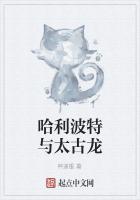WE might have gone about half a mile, and my pocket-handkerchief was quite wet through, when the carrier stopped short. Looking out to ascertain for what, I saw, to My amazement, Peggotty burst from a hedge and climb into the cart. She took me in both her arms, and squeezed me to her stays until the pressure on my nose was extremely painful, though I never thought of that till afterwards when I found it very tender. Not a single word did Peggotty speak. Releasing one of her arms, she put it down in her pocket to the elbow, and brought out some paper bags of cakes which she crammed into my pockets, and a purse which she put into my hand, but not one word did she say. After another and a final squeeze with both arms, she got down from the cart and ran away; and, my belief is, and has always been, without a solitary button on her gown. I picked up one, of several that were rolling about, and treasured it as a keepsake for a long time.
The carrier looked at me, as if to inquire if she were coming back. I shook my head, and said I thought not.'Then come up,'said the carrier to the lazy horse; who came up accordingly.
Having by this time cried as much as I possibly could, I began to think it was of no use crying any more, especially as neither Roderick Random, nor that Captain in the Royal British Navy, had ever cried, that I could remember, in trying situations. The carrier, seeing me in this resolution, proposed that my pocket-handkerchief should be spread upon the horse's back to dry. I thanked him, and assented; and particularly small it looked, under those circumstances.
I had now leisure to examine the purse. It was a stiff leather purse, with a snap, and had three bright shillings in it, which Peggotty had evidently polished up with whitening, for my greater delight. But its most precious contents were two half-crowns folded together in a bit of paper, on which was written, in my mother's hand,'For Davy. With my love.'I was so overcome by this, that I asked the carrier to be so good as to reach me my pocket-handkerchief again; but he said he thought I had better do without it, and I thought I really had, so I wiped my eyes on my sleeve and stopped myself.
For good, too; though, in confirstTitle of my previous emotions, I was still occasionally seized with a stormy sob. After we had jogged on for some little time, I asked the carrier if he was going all the way.
'All the way where?'inquired the carrier.
'There,'I said.
'Where's there?'inquired the carrier.
'Near London,'I said.
'Why that horse,'said the carrier, jerking the rein to point him out,'would be deader than pork afore he got over half the ground.'
'Are you only going to Yarmouth then?'I asked.
'That's about it,'said the carrier.'And there I shall take you to the stage-cutch, and the stage-cutch that'll take you to—wherever it is.'
As this was a great deal for the carrier (whose name was Mr. Barkis) to say—he being, as I observed in a former chapter, of a phlegmatic temperament, and not at all conversational—I offered him a cake as a mark of attention, which he ate at one gulp, exactly like an elephant, and which made no more impression on his big face than it would have done on an elephant's.
'Did SHE make 'em, now?'said Mr. Barkis, always leaning forward, in his slouching way, on the footboard of the cart with an arm on each knee.
'Peggotty, do you mean, sir?'
'Ah!'said Mr. Barkis.'Her.'
'Yes. She makes all our pastry, and does all our cooking.'
'Do she though?'said Mr. Barkis. He made up his mouth as if to whistle, but he didn't whistle. He sat looking at the horse's ears, as if he saw something new there; and sat so, for a considerable time. By and by, he said:
'No sweethearts, I b'lieve?'
'Sweetmeats did you say, Mr. Barkis?'For I thought he wanted something else to eat, and had pointedly alluded to that deion of refreshment.
'Hearts,'said Mr. Barkis.'Sweet hearts; no person walks with her!'
'With Peggotty?'
'Ah!'he said.'Her.'
'Oh, no. She never had a sweetheart.'
'Didn't she, though!'said Mr. Barkis.
Again he made up his mouth to whistle, and again he didn't whistle, but sat looking at the horse's ears.
'So she makes,'said Mr. Barkis, after a long interval of reflection,'all the apple parsties, and doos all the cooking, do she?'
I replied that such was the fact.
'Well. I'll tell you what,'said Mr. Barkis.'P'raps you might be writin'to her?'
'I shall certainly write to her,'I rejoined.
'Ah!'he said, slowly turning his eyes towards me.'Well! If you was writin'to her,'p'raps you'd recollect to say that Barkis was willin'; would you?
'That Barkis is willing,'I repeated, innocently.'Is that all the message?'
'Ye-es,'he said, considering.'Ye-es. Barkis is willin'.'
'But you will be at Blunderstone again tomorrow, Mr. Barkis,'I said, faltering a little at the idea of my being far away from it then, and could give your own message so much better.'
As he repudiated this suggestion, however, with a jerk of his head, and once more confirmed his previous request by saying, with profound gravity,'Barkis is willin'. That's the message,'I readily undertook its transmission. While I was waiting for the coach in the hotel at Yarmouth that very afternoon, I procured a sheet of paper and an inkstand, and wrote a note to Peggotty, which ran thus:'My dear Peggotty. I have come here safe. Barkis is willing. My love to mama. Yours affectionately. P.S. He says he particularly wants you to know—BARKIS IS WILLING.'
When I had taken this commission on myself prospectively, Mr. Barkis relapsed into perfect silence; and I, feeling quite worn out by all that had happened lately, lay down on a sack in the cart and fell asleep. I slept soundly until we got to Yarmouth; which was so entirely new and strange to me in the inn-yard to which we drove, that I at once abandoned a latent hope I had had of meeting with some of Mr. Peggotty's family there, perhaps even with little Em'ly herself.
The coach was in the yard, shining very much all over, but without any horses to it as yet; and it looked in that state as if nothing was more unlikely than its ever going to London. I was thinking this, and wondering what would ultimately become of my box, which Mr. Barkis had put down on the yard-pavement by the pole (he having driven up the yard to turn his cart), and also what would ultimately become of me, when a lady looked out of a bow-window where some fowls and joints of meat were hanging up, and said:
'Is that the little gentleman from Blunderstone?'
'Yes, ma'am,'I said.
'What name?'inquired the lady.
'Copperfield, ma'am,'I said.
'That won't do,'returned the lady.'Nobody's dinner is paid for here, in that name.'
'Is it Murdstone, ma'am?'I said.
'If you're Master Murdstone,'said the lady,'why do you go and give another name, first?'
I explained to the lady how it was, who than rang a bell, and called out,'William! show the coffee-room!'upon which a waiter came running out of a kitchen on the opposite side of the yard to show it, and seemed a good deal surprised when he was only to show it to me.
It was a large long room with some large maps in it. I doubt if I could have felt much stranger if the maps had been real foreign countries, and I cast away in the middle of them. I felt it was taking a liberty to sit down, with my cap in my hand, on the corner of the chair nearest the door; and when the waiter laid a cloth on purpose for me, and put a set of castors on it, I think I must have turned red all over with modesty.
He brought me some chops, and vegetables, and took the covers off in such a bouncing manner that I was afraid I must have given him some offence. But he greatly relieved my mind by putting a chair for me at the table, and saying, very affably,'Now, six-foot! come on!'
I thanked him, and took my seat at the board; but found it extremely difficult to handle my knife and fork with anything like dexterity, or to avoid splashing myself with the gravy, while he was standing opposite, staring so hard, and ****** me blush in the most dreadful manner every time I caught his eye. After watching me into the second chop, he said:
'There's half a pint of ale for you. Will you have it now?'
I thanked him and said,'Yes.'Upon which he poured it out of a jug into a large tumbler, and held it up against the light, and made it look beautiful.
'My eye!'he said.'It seems a good deal, don't it?'
'It does seem a good deal,'I answered with a smile. For it was quite delightful to me, to find him so pleasant. He was a twinkling-eyed, pimple-faced man, with his hair standing upright all over his head; and as he stood with one arm a-kimbo, holding up the glass to the light with the other hand, he looked quite friendly.
'There was a gentleman here, yesterday,'he said—'a stout gentleman, by the name of Topsawyer—perhaps you know him?'
'No,'I said,'I don't think—'
'In breeches and gaiters, broad-brimmed hat, grey coat, speckled choker,'said the waiter.
'No,'I said bashfully,'I haven't the pleasure—'
'He came in here,'said the waiter, looking at the light through the tumbler,'ordered a glass of this ale—WOULD order it—I told him not—drank it, and fell dead. It was too old for him. It oughtn't to be drawn; that's the fact.'
I was very much shocked to hear of this melancholy accident, and said I thought I had better have some water.
'Why you see,'said the waiter, still looking at the light through the tumbler, with one of his eyes shut up,'our people don't like things being ordered and left. It offends 'em. But I'll drink it, if you like. I'm used to it, and use is everything. I don't think it'll hurt me, if I throw my head back, and take it off quick. Shall I?'
I replied that he would much oblige me by drinking it, if he thought he could do it safely, but by no means otherwise. When he did throw his head back, and take it off quick, I had a horrible fear, I confess, of seeing him meet the fate of the lamented Mr. Topsawyer, and fall lifeless on the carpet. But it didn't hurt him. On the contrary, I thought he seemed the fresher for it.
'What have we got here?'he said, putting a fork into my dish.'Not chops?'
'Chops,'I said.
'Lord bless my soul!'he exclaimed,'I didn't know they were chops. Why, a chop's the very thing to take off the bad effects of that beer! Ain't it lucky?'
So he took a chop by the bone in one hand, and a potato in the other, and ate away with a very good appetite, to my extreme satisfaction. He afterwards took another chop, and another potato; and after that, another chop and another potato. When we had done, he brought me a pudding, and having set it before me, seemed to ruminate, and to become absent in his mind for some moments.
'How's the pie?'he said, rousing himself.
'It's a pudding,'I made answer.
'Pudding!'he exclaimed.'Why, bless me, so it is! What!'looking at it nearer.'You don't mean to say it's a batter-pudding!'
'Yes, it is indeed.'
'Why, a batter-pudding,'he said, taking up a table-spoon,'is my favourite pudding! Ain't that lucky? Come on, little 'un, and let's see who'll get most.'
The waiter certainly got most. He entreated me more than once to come in and win, but what with his table-spoon to my tea-spoon, his dispatch to my dispatch, and his appetite to my appetite, I was left far behind at the first mouthful, and had no chance with him. I never saw anyone enjoy a pudding so much, I think; and he laughed, when it was all gone, as if his enjoyment of it lasted still.
Finding him so very friendly and companionable, it was then that I asked for the pen and ink and paper, to write to Peggotty. He not only brought it immediately, but was good enough to look over me while I wrote the letter. When I had finished it, he asked me where I was going to school.
I said,'Near London,'which was all I knew.
'Oh! my eye!'he said, looking very low-spirited,'I am sorry for that.'
'Why?'I asked him.
'Oh, Lord!'he said, shaking his head,'that's the school where they broke the boy's ribs—two ribs—a little boy he was. I should say he was—let me see—how old are you, about?'
I told him between eight and nine.
'That's just his age,'he said.'He was eight years and six months old when they broke his first rib; eight years and eight months old when they broke his second, and did for him.'
I could not disguise from myself, or from the waiter, that this was an uncomfortable coincidence, and inquired how it was done. His answer was not cheering to my spirits, for it consisted of two dismal words,'With whopping.'
The blowing of the coach-horn in the yard was a seasonable diversion, which made me get up and hesitatingly inquire, in the mingled pride and diffidence of having a purse (which I took out of my pocket), if there were anything to pay.
'There's a sheet of letter-paper,'he returned.'Did you ever buy a sheet of letter-paper?'
I could not remember that I ever had.
'It's dear,'he said,'on account of the duty. Threepence. That's the way we're taxed in this country. There's nothing else, except the waiter. Never mind the ink. I lose by that.'
'What should you—what should I—how much ought I to—what would it be right to pay the waiter, if you please?'I stammered, blushing.
'If I hadn't a family, and that family hadn't the cowpock,'said the waiter,'I wouldn't take a sixpence. If I didn't support a aged pairint, and a lovely sister,'—here the waiter was greatly agitated—'I wouldn't take a farthing. If I had a good place, and was treated well here, I should beg acceptance of a trifle, instead of taking of it. But I live on broken wittles—and I sleep on the coals'—here the waiter burst into tears.
I was very much concerned for his misfortunes, and felt that any recognition short of ninepence would be mere brutality and hardness of heart. Therefore I gave him one of my three bright shillings, which he received with much humility and veneration, and spun up with his thumb, directly afterwards, to try the goodness of.
It was a little disconcerting to me, to find, when I was being helped up behind the coach, that I was supposed to have eaten all the dinner without any assistance. I discovered this, from overhearing the lady in the bow-window say to the guard,'Take care of that child, George, or he'll burst!'and from observing that the women-servants who were about the place came out to look and giggle at me as a young phenomenon. My unfortunate friend the waiter, who had quite recovered his spirits, did not appear to be disturbed by this, but joined in the general admiration without being at all confused. If I had any doubt of him, I suppose this half awakened it; but I am inclined to believe that with the ****** confidence of a child, and the natural reliance of a child upon superior years (qualities I am very sorry any children should prematurely change for worldly wisdom), I had no serious mistrust of him on the whole, even then.
I felt it rather hard, I must own, to be made, without deserving it, the subject of jokes between the coachman and guard as to the coach drawing heavy behind, on account of my sitting there, and as to the greater expediency of my travelling by waggon. The story of my supposed appetite getting wind among the outside passengers, they were merry upon it likewise; and asked me whether I was going to be paid for, at school, as two brothers or three, and whether I was contracted for, or went upon the regular terms; with other pleasant questions. But the worst of it was, that I knew I should be ashamed to eat anything, when an opportunity offered, and that, after a rather light dinner, I should remain hungry all night—for I had left my cakes behind, at the hotel, in my hurry. My apprehensions were realized. When we stopped for supper I couldn't muster courage to take any, though I should have liked it very much, but sat by the fire and said I didn't want anything. This did not save me from more jokes, either; for a husky-voiced gentleman with a rough face, who had been eating out of a sandwich-box nearly all the way, except when he had been drinking out of a bottle, said I was like a boa-constrictor who took enough at one meal to last him a long time; after which, he actually brought a rash out upon himself with boiled beef.
We had started from Yarmouth at three o'clock in the afternoon, and we were due in London about eight next morning. It was Mid-summer weather, and the evening was very pleasant. When we passed through a village, I pictured to myself what the insides of the houses were like, and what the inhabitants were about; and when boys came running after us, and got up behind and swung there for a little way, I wondered whether their fathers were alive, and whether they Were happy at home. I had plenty to think of, therefore, besides my mind running continually on the kind of place I was going to—which was an awful speculation. Sometimes, I remember, I resigned myself to thoughts of home and Peggotty; and to endeavouring, in a confused blind way, to recall how I had felt, and what sort of boy I used to be, before I bit Mr. Murdstone: which I couldn't satisfy myself about by any means, I seemed to have bitten him in such a remote antiquity.
The night was not so pleasant as the evening, for it got chilly; and being put between two gentlemen (the rough-faced one and another) to prevent my tumbling off the coach, I was nearly smothered by their falling asleep, and completely blocking me up. They squeezed me so hard sometimes, that I could not help crying out,'Oh! If you please!'—which they didn't like at all, because it woke them. Opposite me was an elderly lady in a great fur cloak, who looked in the dark more like a haystack than a lady, she was wrapped up to such a degree. This lady had a basket with her, and she hadn't known what to do with it, for a long time, until she found that on account of my legs being short, it could go underneath me. It cramped and hurt me so, that it made me perfectly miserable; but if I moved in the least, and made a glass that was in the basket rattle against something else (as it was sure to do), she gave me the cruellest poke with her foot, and said,'Come, don't YOU fidget. YOUR bones are young enough, I'm sure!'
At last the sun rose, and then my companions seemed to sleep easier. The difficulties under which they had laboured all night, and which had found utterance in the most terrific gasps and snorts, are not to be conceived. As the sun got higher, their sleep became lighter, and so they gradually one by one awoke. I recollect being very much surprised by the feint everybody made, then, of not having been to sleep at all, and by the uncommon indignation with which everyone repelled the charge. I labour under the same kind of astonishment to this day, having invariably observed that of all human weaknesses, the one to which our common nature is the least disposed to confess (I cannot imagine why) is the weakness of having gone to sleep in a coach.
What an amazing place London was to me when I saw it in the distance, and how I believed all the adventures of all my favourite heroes to be constantly enacting and re-enacting there, and how I vaguely made it out in my own mind to be fuller of wonders and wickedness than all the cities of the earth, I need not stop here to relate. We approached it by degrees, and got, in due time, to the inn in the Whitechapel district, for which we were bound. I forget whether it was the Blue Bull, or the Blue Boar; but I know it was the Blue Something, and that its likeness was painted up on the back of the coach.
The guard's eye lighted on me as he was getting down, and he said at the booking-office door:
'Is there anybody here for a yoongster booked in the name of Murdstone, from Bloonderstone, Sooffolk, to be left till called for?'
Nobody answered.
'Try Copperfield, if you please, sir,'said I, looking helplessly down.
'Is there anybody here for a yoongster, booked in the name of Murdstone, from Bloonderstone, Sooffolk, but owning to the name of Copperfield, to be left till called for?'said the guard.'Come! IS there anybody?'
No. There was nobody. I looked anxiously around; but the inquiry made no impression on any of the bystanders, if I except a man in gaiters, with one eye, who suggested that they had better put a brass collar round my neck, and tie me up in the stable.
A ladder was brought, and I got down after the lady, who was like a haystack: not daring to stir, until her basket was removed. The coach was clear of passengers by that time, the luggage was very soon cleared out, the horses had been taken out before the luggage, and now the coach itself was wheeled and backed off by some hostlers, out of the way. Still, nobody appeared, to claim the dusty youngster from Blunderstone, Suffolk.
More solitary than Robinson Crusoe, who had nobody to look at him and see that he was solitary, I went into the booking-office, and, by invitation of the clerk on duty, passed behind the counter, and sat down on the scale at which they weighed the luggage. Here, as I sat looking at the parcels, packages, and books, and inhaling the smell of stables (ever since associated with that morning), a procession of most tremendous considerations began to march through my mind. Supposing nobody should ever fetch me, how long would they consent to keep me there? Would they keep me long enough to spend seven shillings? Should I sleep at night in one of those wooden bins, with the other luggage, and wash myself at the pump in the yard in the morning; or should I be turned out every night, and expected to come again to be left till called for, when the office opened next day? Supposing there was no mistake in the case, and Mr. Murdstone had devised this plan to get rid of me, what should I do? If they allowed me to remain there until my seven shillings were spent, I couldn't hope to remain there when I began to starve. That would obviously be inconvenient and unpleasant to the customers, besides entailing on the Blue Whatever-it-was, the risk of funeral expenses. If I started off at once, and tried to walk back home, how could I ever find my way, how could I ever hope to walk so far, how could I make sure of anyone but Peggotty, even if I got back? If I found out the nearest proper authorities, and offered myself to go for a soldier, or a sailor, I was such a little fellow that it was most likely they wouldn't take me in. These thoughts, and a hundred other such thoughts, turned me burning hot, and made me giddy with apprehension and dismay. I was in the height of my fever when a man entered and whispered to the clerk, who presently slanted me off the scale, and pushed me over to him, as if I were weighed, bought, delivered, and paid for.
As I went out of the office, hand in hand with this new acquaintance, I stole a look at him. He was a gaunt, sallow young man, with hollow cheeks, and a chin almost as black as Mr. Murdstone's; but there the likeness ended, for his whiskers were shaved off, and his hair, instead of being glossy, was rusty and dry. He was dressed in a suit of black clothes which were rather rusty and dry too, and rather short in the sleeves and legs; and he had a white neck-kerchief on, that was not over-clean. I did not, and do not, suppose that this neck-kerchief was all the linen he wore, but it was all he showed or gave any hint of.
'You're the new boy?'he said.'Yes, sir,'I said.
I supposed I was. I didn't know.
'I'm one of the masters at Salem House,'he said.
I made him a bow and felt very much overawed. I was so ashamed to allude to a commonplace thing like my box, to a scholar and a master at Salem House, that we had gone some little distance from the yard before I had the hardihood to mention it. We turned back, on my humbly insinuating that it might be useful to me hereafter; and he told the clerk that the carrier had instructions to call for it at noon.
'If you please, sir,'I said, when we had accomplished about the same distance as before,'is it far?'
'It's down by Blackheath,'he said.
'Is that far, sir?'I diffidently asked.
'It's a good step,'he said.'We shall go by the stage-coach. It's about six miles.'
I was so faint and tired, that the idea of holding out for six miles more, was too much for me. I took heart to tell him that I had had nothing all night, and that if he would allow me to buy something to eat, I should be very much obliged to him. He appeared surprised at this—I see him stop and look at me now—and after considering for a few moments, said he wanted to call on an old person who lived not far off, and that the best way would be for me to buy some bread, or whatever I liked best that was wholesome, and make my breakfast at her house, where we could get some milk.
Accordingly we looked in at a baker's window, and after I had made a series of proposals to buy everything that was bilious in the shop, and he had rejected them one by one, we decided in favour of a nice little loaf of brown bread, which cost me threepence. Then, at a grocer's shop, we bought an egg and a slice of streaky bacon; which still left what I thought a good deal of change, out of the second of the bright shillings, and made me consider London a very cheap place. These provisions laid in, we went on through a great noise and uproar that confused my weary head beyond deion, and over a bridge which, no doubt, was London Bridge (indeed I think he told me so, but I was half asleep), until we came to the poor person's house, which was a part of some alms-houses, as I knew by their look, and by an inion on a stone over the gate which said they were established for twenty-five poor women.
The Master at Salem House lifted the latch of one of a number of little black doors that were all alike, and had each a little diamond-paned window on one side, and another little diamond—paned window above; and we went into the little house of one of these poor old women, who was blowing a fire to make a little saucepan boil. On seeing the master enter, the old woman stopped with the bellows on her knee, and said something that I thought sounded like'My Charley!'but on seeing me come in too, she got up, and rubbing her hands made a confused sort of half curtsey.
'Can you cook this young gentleman's breakfast for him, if you please?'said the Master at Salem House.
'Can I?'said the old woman.'Yes can I, sure!'
'How's Mrs. Fibbitson today?'said the Master, looking at another old woman in a large chair by the fire, who was such a bundle of clothes that I feel grateful to this hour for not having sat upon her by mistake.
'Ah, she's poorly,'said the first old woman.'It's one of her bad days. If the fire was to go out, through any accident, I verily believe she'd go out too, and never come to life again.'
As they looked at her, I looked at her also. Although it was a warm day, she seemed to think of nothing but the fire. I fancied she was jealous even of the saucepan on it; and I have reason to know that she took its impressment into the service of boiling my egg and broiling my bacon, in dudgeon; for I saw her, with my own discomfited eyes, shake her fist at me once, when those culinary operations were going on, and no one else was looking. The sun streamed in at the little window, but she sat with her own back and the back of the large chair towards it, screening the fire as if she were sedulously keeping IT warm, instead of it keeping her warm, and watching it in a most distrustful manner. The completion of the preparations for my breakfast, by relieving the fire, gave her such extreme joy that she laughed aloud—and a very unmelodious laugh she had, I must say.
I sat down to my brown loaf, my egg, and my rasher of bacon, with a basin of milk besides, and made a most delicious meal. While I was yet in the full enjoyment of it, the old woman of the house said to the Master:
'Have you got your flute with you?'
'Yes,'he returned.
'Have a blow at it,'said the old woman, coaxingly.'Do!'
The Master, upon this, put his hand underneath the skirts of his coat, and brought out his flute in three pieces, which he screwed together, and began immediately to play. My impression is, after many years of consideration, that there never can have been anybody in the world who played worse. He made the most dismal sounds I have ever heard produced by any means, natural or artificial. I don't know what the tunes were—if there were such things in the performance at all, which I doubt—but the influence of the strain upon me was, first, to make me think of all my sorrows until I could hardly keep my tears back; then to take away my appetite; and lastly, to make me so sleepy that I couldn't keep my eyes open. They begin to close again, and I begin to nod, as the recollection rises fresh upon me. Once more the little room, with its open corner cupboard, and its square-backed chairs, and its angular little staircase leading to the room above, and its three peacock's feathers displayed over the mantelpiece—I remember wondering when I first went in, what that peacock would have thought if he had known what his finery was doomed to come to—fades from before me, and I nod, and sleep. The flute becomes inaudible, the wheels of the coach are heard instead, and I am on my journey. The coach jolts, I wake with a start, and the flute has come back again, and the Master at Salem House is sitting with his legs crossed, playing it dolefully, while the old woman of the house looks on delighted. She fades in her turn, and he fades, and all fades, and there is no flute, no Master, no Salem House, no David Copperfield, no anything but heavy sleep.
I dreamed, I thought, that once while he was blowing into this dismal flute, the old woman of the house, who had gone nearer and nearer to him in her ecstatic admiration, leaned over the back of his chair and gave him an affectionate squeeze round the neck, which stopped his playing for a moment. I was in the middle state between sleeping and waking, either then or immediately afterwards; for, as he resumed—it was a real fact that he had stopped playing—I saw and heard the same old woman ask Mrs. Fibbitson if it wasn't delicious (meaning the flute), to which Mrs. Fibbitson replied,'Ay, ay! yes!'and nodded at the fire: to which, I am persuaded, she gave the credit of the whole performance.
When I seemed to have been dozing a long while, the Master at Salem House unscrewed his flute into the three pieces, put them up as before, and took me away. We found the coach very near at hand, and got upon the roof; but I was so dead sleepy, that when we stopped on the road to take up somebody else, they put me inside where there were no passengers, and where I slept profoundly, until I found the coach going at a footpace up a steep hill among green leaves. Presently, it stopped, and had come to its destination.
A short walk brought us—I mean the Master and me—to Salem House, which was enclosed with a high brick wall, and looked very dull. Over a door in this wall was a board with SALEM HOUSE upon it; and through a grating in this door we were surveyed when we rang the bell by a surly face, which I found, on the door being opened, belonged to a stout man with a bull-neck, a wooden leg, overhanging temples, and his hair cut close all round his head.
'The new boy,'said the Master.
The man with the wooden leg eyed me all over—it didn't take long, for there was not much of me—and locked the gate behind us, and took out the key. We were going up to the house, among some dark heavy trees, when he called after my conductor.'Hallo!'
We looked back, and he was standing at the door of a little lodge, where he lived, with a pair of boots in his hand.
'Here! The cobbler's been,'he said,'since you've been out, Mr. Mell, and he says he can't mend 'em any more. He says there ain't a bit of the original boot left, and he wonders you expect it.'
With these words he threw the boots towards Mr. Mell, who went back a few paces to pick them up, and looked at them (very disconsolately, I was afraid), as we went on together. I observed then, for the first time, that the boots he had on were a good deal the worse for wear, and that his stocking was just breaking out in one place, like a bud.
Salem House was a square brick building with wings; of a bare and unfurnished appearance. All about it was so very quiet, that I said to Mr. Mell I supposed the boys were out; but he seemed surprised at my not knowing that it was holiday-time. That all the boys were at their several homes. That Mr. Creakle, the proprietor, was down by the sea-side with Mrs. and Miss Creakle; and that I was sent in holiday-time as a punishment for my misdoing, all of which he explained to me as we went along.
I gazed upon the schoolroom into which he took me, as the most forlorn and desolate place I had ever seen. I see it now. A long room with three long rows of desks, and six of forms, and bristling all round with pegs for hats and slates. Scraps of old copy-books and exercises litter the dirty floor. Some silkworms' houses, made of the same materials, are scattered over the desks. Two miserable little white mice, left behind by their owner, are running up and down in a fusty castle made of pasteboard and wire, looking in all the corners with their red eyes for anything to eat. A bird, in a cage very little bigger than himself, makes a mournful rattle now and then in hopping on his perch, two inches high, or dropping from it; but neither sings nor chirps. There is a strange unwholesome smell upon the room, like mildewed corduroys, sweet apples wanting air, and rotten books. There could not well be more ink splashed about it, if it had been roofless from its first construction, and the skies had rained, snowed, hailed, and blown ink through the varying seasons of the year.
Mr. Mell having left me while he took his irreparable boots upstairs, I went softly to the upper end of the room, observing all this as I crept along. Suddenly I came upon a pasteboard placard, beautifully written, which was lying on the desk, and bore these words:'TAKE CARE OF HIM. HE BITES.'
I got upon the desk immediately, apprehensive of at least a great dog underneath. But, though I looked all round with anxious eyes, I could see nothing of him. I was still engaged in peering about, when Mr. Mell came back, and asked me what I did up there?
'I beg your pardon, sir,'says I,'if you please, I'm looking for the dog.'
'Dog?'he says.'What dog?'
'Isn't it a dog, sir?'
'Isn't what a dog?'
'That's to be taken care of, sir; that bites.'
'No, Copperfield,'says he, gravely,'that's not a dog. That's a boy. My instructions are, Copperfield, to put this placard on your back. I am sorry to make such a beginning with you, but I must do it.'With that he took me down, and tied the placard, which was neatly constructed for the purpose, on my shoulders like a knapsack; and wherever I went, afterwards, I had the consolation of carrying it.
What I suffered from that placard, nobody can imagine. Whether it was possible for people to see me or not, I always fancied that somebody was reading it. It was no relief to turn round and find nobody; for wherever my back was, there I imagined somebody always to be. That cruel man with the wooden leg aggravated my sufferings. He was in authority; and if he ever saw me leaning against a tree, or a wall, or the house, he roared out from his lodge door in a stupendous voice,'Hallo, you sir! You Copperfield! Show that badge conspicuous, or I'll report you!'The playground was a bare gravelled yard, open to all the back of the house and the offices; and I knew that the servants read it, and the butcher read it, and the baker read it; that everybody, in a word, who came backwards and forwards to the house, of a morning when I was ordered to walk there, read that I was to be taken care of, for I bit, I recollect that I positively began to have a dread of myself, as a kind of wild boy who did bite.
There was an old door in this playground, on which the boys had a custom of carving their names. It was completely covered with such inions. In my dread of the end of the vacation and their coming back, I could not read a boy's name, without inquiring in what tone and with what emphasis HE would read,'Take care of him. He bites.'There was one boy—a certain J. Steerforth—who cut his name very deep and very often, who, I conceived, would read it in a rather strong voice, and afterwards pull my hair. There was another boy, one Tommy Traddles, who I dreaded would make game of it, and pretend to be dreadfully frightened of me. There was a third, George Demple, who I fancied would sing it. I have looked, a little shrinking creature, at that door, until the owners of all the names—there were five-and-forty of them in the school then, Mr. Mell said—seemed to send me to Coventry by general acclamation, and to cry out, each in his own way,'Take care of him. He bites!'
It was the same with the places at the desks and forms. It was the same with the groves of deserted bedsteads I peeped at, on my way to, and when I was in, my own bed. I remember dreaming night after night, of being with my mother as she used to be, or of going to a party at Mr. Peggotty's, or of travelling outside the stage-coach, or of dining again with my unfortunate friend the waiter, and in all these circumstances ****** people scream and stare, by the unhappy disclosure that I had nothing on but my little night-shirt, and that placard.
In the monotony of my life, and in my constant apprehension of the re-opening of the school, it was such an insupportable affliction! I had long tasks every day to do with Mr. Mell; but I did them, there being no Mr. and Miss Murdstone here, and got through them without disgrace. Before, and after them, I walked about—supervised, as I have mentioned, by the man with the wooden leg. How vividly I call to mind the damp about the house, the green cracked flagstones in the court, an old leaky water-butt, and the discoloured trunks of some of the grim trees, which seemed to have dripped more in the rain than other trees, and to have blown less in the sun! At one we dined, Mr. Mell and I, at the upper end of a long bare dining-room, full of deal tables, and smelling of fat. Then, we had more tasks until tea, which Mr. Mell drank out of a blue teacup, and I out of a tin pot. All day long, and until seven or eight in the evening, Mr. Mell, at his own detached desk in the schoolroom, worked hard with pen, ink, ruler, books, and writing-paper, ****** out the bills (as I found) for last half-year. When he had put up his things for the night he took out his flute, and blew at it, until I almost thought he would gradually blow his whole being into the large hole at the top, and ooze away at the keys.
I picture my small self in the dimly-lighted rooms, sitting with my head upon my hand, listening to the doleful performance of Mr. Mell, and conning tomorrow's lessons. I picture myself with my books shut up, still listening to the doleful performance of Mr. Mell, and listening through it to what used to be at home, and to the blowing of the wind on Yarmouth flats, and feeling very sad and solitary. I picture myself going up to bed, among the unused rooms, and sitting on my bed-side crying for a comfortable word from Peggotty. I picture myself coming downstairs in the morning, and looking through a long ghastly gash of a staircase window at the school-bell hanging on the top of an out-house with a weathercock above it; and dreading the time when it shall ring J. Steerforth and the rest to work: which is only second, in my foreboding apprehensions, to the time when the man with the wooden leg shall unlock the rusty gate to give admission to the awful Mr. Creakle. I cannot think I was a very dangerous character in any of these aspects, but in all of them I carried the same warning on my back.
Mr. Mell never said much to me, but he was never harsh to me. I suppose we were company to each other, without talking. I forgot to mention that he would talk to himself sometimes, and grin, and clench his fist, and grind his teeth, and pull his hair in an unaccountable manner. But he had these peculiarities: and at first they frightened me, though I soon got used to them.















